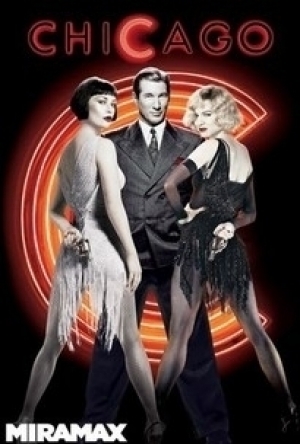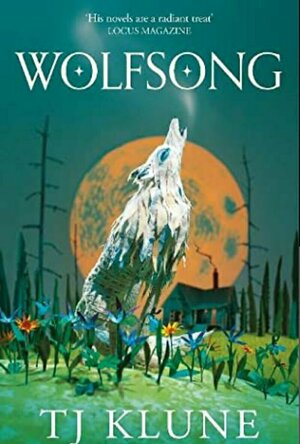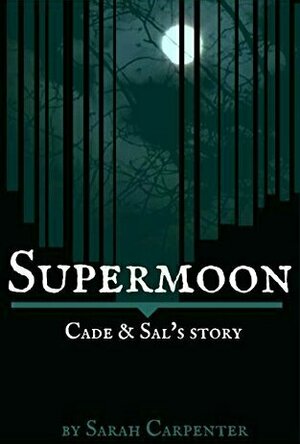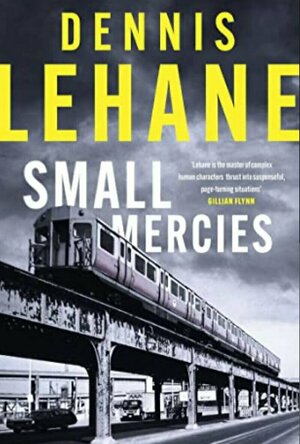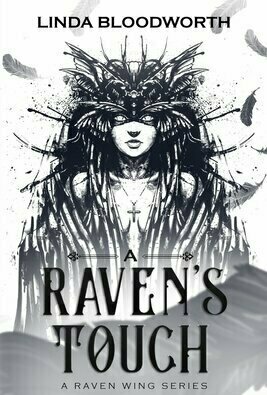Search
Search results
Kim Pook (101 KP) rated Chicago (2002) in Movies
Jul 31, 2022
Contains spoilers, click to show
This review comes from a first time viewer in 2022. I put off watching it for years because it didn't look like my kinda film. In the end I decided to watch it after learning to tap dance to one of the songs in my tap class.
I'm sure most of you have seen this movie by now, but for those that haven't ill do my usual overview of the movie before my final review at the end.
So the movie is set in 1920s Chicago, we see someone hiding a gun and washing blood from their hands, clearly a murder has just taken place and we are treated to a rendition of "all that jazz", whilst a character named Roxie is having a steamy session with a guy. Once the musical number is over, the session turns violent and Roxie shoots the guy, thus landing herself in jail. The rest of the movie is Roxie trying to proof her innocence with musical numbers randomly mixed in.
Unlike other musicals, it's not really characters suddenly breaking into song as such, but it's the characters putting on show numbers in Roxies imagination (or at least I think, but there are times when performances suddenly start and Roxie wasn't in the scene, so who knows). Once you get past the random performances it is a pretty good film, I never found myself bored watching it and the songs are catchy with fantastic performances by all.
I'm sure most of you have seen this movie by now, but for those that haven't ill do my usual overview of the movie before my final review at the end.
So the movie is set in 1920s Chicago, we see someone hiding a gun and washing blood from their hands, clearly a murder has just taken place and we are treated to a rendition of "all that jazz", whilst a character named Roxie is having a steamy session with a guy. Once the musical number is over, the session turns violent and Roxie shoots the guy, thus landing herself in jail. The rest of the movie is Roxie trying to proof her innocence with musical numbers randomly mixed in.
Unlike other musicals, it's not really characters suddenly breaking into song as such, but it's the characters putting on show numbers in Roxies imagination (or at least I think, but there are times when performances suddenly start and Roxie wasn't in the scene, so who knows). Once you get past the random performances it is a pretty good film, I never found myself bored watching it and the songs are catchy with fantastic performances by all.
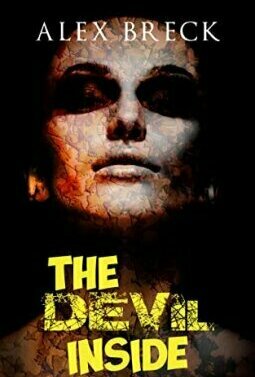
The Devil Inside (The Lachlan Maclean Thriller Series # 2)
Book
There’s bodies raining from the sky and the city is tearing itself in two...’ A decade after...
Well, this was an interesting one. I went in with a “well, I like werewolf stories, so let’s give this a go”, and finished thinking “ok, you should all probably go and read this now!”
It’s about found family, loyalty, love, grief and healing.
Oxnard (Ox) narrates the story about how he meets a young boy who has moved into the house at the bottom of his remote country lane. They form a close friendship very quickly, and the boy (Joe) gives Ox a small stone Wolf as a gift. The true nature of the gift isn’t clear for a few years, and in that time Ox learns just who and what the Bennett family are. He goes from believing he’s stupid and worthless, to being an important, integral member of the Bennett pack - a family of werewolves.
Something terrible happens, and the family fragments in two: whilst one half (including Joe) go off on an arduous adventure, Ox remains behind to protect who is left along with the Bennett territory.
This does get pretty graphically violent, I’ll warn you now, but it’s in context - and these are wolves!
I was utterly beguiled by this story - and I’m glad that I have the next in the series to head to already! I’d like to know how Ox and Joe are getting on as newly mated wolves - and who we’ll learn more about in the next book, Ravensong (I have my suspicions!).
It’s about found family, loyalty, love, grief and healing.
Oxnard (Ox) narrates the story about how he meets a young boy who has moved into the house at the bottom of his remote country lane. They form a close friendship very quickly, and the boy (Joe) gives Ox a small stone Wolf as a gift. The true nature of the gift isn’t clear for a few years, and in that time Ox learns just who and what the Bennett family are. He goes from believing he’s stupid and worthless, to being an important, integral member of the Bennett pack - a family of werewolves.
Something terrible happens, and the family fragments in two: whilst one half (including Joe) go off on an arduous adventure, Ox remains behind to protect who is left along with the Bennett territory.
This does get pretty graphically violent, I’ll warn you now, but it’s in context - and these are wolves!
I was utterly beguiled by this story - and I’m glad that I have the next in the series to head to already! I’d like to know how Ox and Joe are getting on as newly mated wolves - and who we’ll learn more about in the next book, Ravensong (I have my suspicions!).
Heather Cranmer (2721 KP) created a post
Mar 1, 2023
Merissa (13614 KP) rated Supermoon: Cade & Sal's Story (The Dark Cities Trilogy #1) in Books
May 20, 2023
You know, it's been so long since I read a 'vampire' book that was different, but this one has ticked that particular box for me, along with many others. The world has changed, and not everyone thinks that it is a good thing. The vampires are now ruling supreme, whilst shifters are the ones providing the muscle on the farms and mines, working in harsh conditions; and the humans are slaves, and have to wear red to show their position as a 'blood bag'.
This story really starts when Cade is chosen to represent his city in a fight in which there is literally only one winner. It is last one standing (think of Roman gladiators!). Sal is chosen to be one of the human servants who will look after the shifters until such time as they go and fight.
This book is violent, funny, vicious, and hopeful. My heart was in my mouth every time a vampire came near Sal. Cade does a fantastic job of trying to speak to Sal without the vampires knowing. With sweet, yet hot, romance, this book was a delight that I just couldn't put down. I am definitely looking forward to reading more by this author.
* A copy of this book was provided to me with no requirements for a review. I voluntarily read this book, and the comments here are my honest opinion. *
Merissa
Archaeolibrarian - I Dig Good Books!
Jan 31, 2016
This story really starts when Cade is chosen to represent his city in a fight in which there is literally only one winner. It is last one standing (think of Roman gladiators!). Sal is chosen to be one of the human servants who will look after the shifters until such time as they go and fight.
This book is violent, funny, vicious, and hopeful. My heart was in my mouth every time a vampire came near Sal. Cade does a fantastic job of trying to speak to Sal without the vampires knowing. With sweet, yet hot, romance, this book was a delight that I just couldn't put down. I am definitely looking forward to reading more by this author.
* A copy of this book was provided to me with no requirements for a review. I voluntarily read this book, and the comments here are my honest opinion. *
Merissa
Archaeolibrarian - I Dig Good Books!
Jan 31, 2016
ClareR (6054 KP) rated Small Mercies in Books
May 22, 2023
I’ve never read Dennis Lehane before - and what a place to start! This novel is phenomenal, and I ended it thoroughly heartbroken.
1970s Boston, America, and the school districts want to merge the separate schools for black and white children. Except your average white Southie doesn’t want that to happen, and they’ll do anything to ensure that.
There are violent demonstrations, tensions boil over, and amongst all this a young black man is murdered. At the same time, Mary Pat Fennessy’s daughter goes missing. At first, these two events seem unconnected, but as Mary Pat searches for her daughter it starts to look otherwise. And somehow, the Irish mob are involved.
Mary Pat is the ultimate tiger mother. Her daughter Jules, is her only surviving child, and she’ll stop at nothing to find her - dead or alive.
This is brutal, and proves that ultimately revenge profits no one. The heat simmered off the page, as did the threatened and real violence. The writing is gorgeous despite the violence, and is a masterclass in how a writer can make the most ugly things so astonishing.
I’m expecting to see a film adaptation of this at some point - it reads like a screenplay.
This may well be my first novel by Lehane, but I doubt very much that it will be my last. Thanks for introducing me to another new-to-me author, Pigeonhole!
1970s Boston, America, and the school districts want to merge the separate schools for black and white children. Except your average white Southie doesn’t want that to happen, and they’ll do anything to ensure that.
There are violent demonstrations, tensions boil over, and amongst all this a young black man is murdered. At the same time, Mary Pat Fennessy’s daughter goes missing. At first, these two events seem unconnected, but as Mary Pat searches for her daughter it starts to look otherwise. And somehow, the Irish mob are involved.
Mary Pat is the ultimate tiger mother. Her daughter Jules, is her only surviving child, and she’ll stop at nothing to find her - dead or alive.
This is brutal, and proves that ultimately revenge profits no one. The heat simmered off the page, as did the threatened and real violence. The writing is gorgeous despite the violence, and is a masterclass in how a writer can make the most ugly things so astonishing.
I’m expecting to see a film adaptation of this at some point - it reads like a screenplay.
This may well be my first novel by Lehane, but I doubt very much that it will be my last. Thanks for introducing me to another new-to-me author, Pigeonhole!
Merissa (13614 KP) rated A Raven's Touch in Books
May 23, 2023
This story starts with Justice waking up from a dream, outside her home in her nightwear. Not only that, but she appears to have two 'muffins' growing out of her shoulder blades. She has no idea of what is going on, is afraid to tell her parents, and on top of that, needs to get ready to go back to the hell that is called high school.
A Raven's Touch includes some shocking (violent) scenes in the high school that are necessary to the storyline. So much happens in such a small amount of time, but it is well-written and paced so it doesn't feel rushed when you are reading it. There is a reference made in the beginning to Matt Smith's Doctor Who - or at least, I like to think so. This made me smile as I read through the beginning.
This is a story of friendships, hardships, love and hate. With vampires, witches, elves and angels who speak to "Him" on a daily basis, this is the start of a series that I am looking forward to continuing. Personally, I can't wait to read more about Darien and Justice, although Moira and Tom make me smile too. Definitely recommended.
* A copy of this book was provided to me with no requirements for a review. I voluntarily read this book, and the comments here are my honest opinion. *
Merissa
Archaeolibrarian - I Dig Good Books!
Feb 19, 2016
A Raven's Touch includes some shocking (violent) scenes in the high school that are necessary to the storyline. So much happens in such a small amount of time, but it is well-written and paced so it doesn't feel rushed when you are reading it. There is a reference made in the beginning to Matt Smith's Doctor Who - or at least, I like to think so. This made me smile as I read through the beginning.
This is a story of friendships, hardships, love and hate. With vampires, witches, elves and angels who speak to "Him" on a daily basis, this is the start of a series that I am looking forward to continuing. Personally, I can't wait to read more about Darien and Justice, although Moira and Tom make me smile too. Definitely recommended.
* A copy of this book was provided to me with no requirements for a review. I voluntarily read this book, and the comments here are my honest opinion. *
Merissa
Archaeolibrarian - I Dig Good Books!
Feb 19, 2016
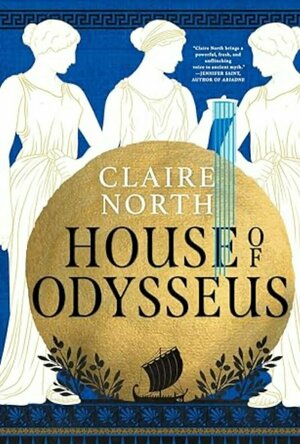
The House of Odysseus
Book
From the author of the critically acclaimed Ithaca - A Sunday Times Historical Fiction Book of the...
Historical fiction Greek mythology
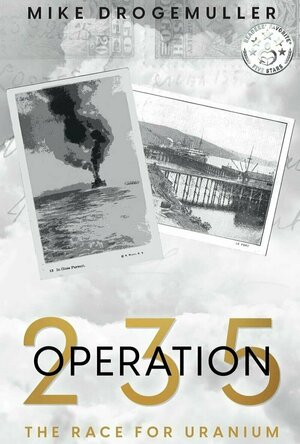
Operation 235
Book
Set in the summer of 1939, Operation 235 pits the United States against Nazi Germany, as the two...
Lyndsey Gollogly (2893 KP) rated Recluse in Books
May 11, 2024
92 of 220
Book sirens arc
Recluse
By Gabriel Zavala
⭐️⭐️⭐️⭐️
HE'S WEAVING HIS WEB OF MURDER.
Lukas Retter is a recluse in the correctional city of East Haddam, Connecticut, washing cars and dreaming about taking back control of his life. He has been ever since The Safety First Act redefined criminal justice in America.
Meanwhile, the children of criminals are placed in psychiatric hospitals to be evaluated.
But when Lukas murders Rebecca Waylow, his girlfriend, he leaves her dismembered and strung-up on a web of bloody ropes and wires. And she won't be the last.
As Lukas recalls his sinister past and becomes the new nightmare of his correctional city, he transforms into the serial killer he was destined to become. He'll do whatever it takes to feel control, even if it means stringing a few people up in the process.
This was pretty brutal from start to finish. Not one of these characters have any redeeming qualities. This main character was taken from his home at a young age, accused of killing his father even though he watched his sister do it to then be put into a violent situation by the government.
It’s a tough read but actually really well written especially from such a young author who definitely has a long promising career ahead of him.
I received an advance review copy for free, and I am leaving this review voluntarily.
Book sirens arc
Recluse
By Gabriel Zavala
⭐️⭐️⭐️⭐️
HE'S WEAVING HIS WEB OF MURDER.
Lukas Retter is a recluse in the correctional city of East Haddam, Connecticut, washing cars and dreaming about taking back control of his life. He has been ever since The Safety First Act redefined criminal justice in America.
Meanwhile, the children of criminals are placed in psychiatric hospitals to be evaluated.
But when Lukas murders Rebecca Waylow, his girlfriend, he leaves her dismembered and strung-up on a web of bloody ropes and wires. And she won't be the last.
As Lukas recalls his sinister past and becomes the new nightmare of his correctional city, he transforms into the serial killer he was destined to become. He'll do whatever it takes to feel control, even if it means stringing a few people up in the process.
This was pretty brutal from start to finish. Not one of these characters have any redeeming qualities. This main character was taken from his home at a young age, accused of killing his father even though he watched his sister do it to then be put into a violent situation by the government.
It’s a tough read but actually really well written especially from such a young author who definitely has a long promising career ahead of him.
I received an advance review copy for free, and I am leaving this review voluntarily.
